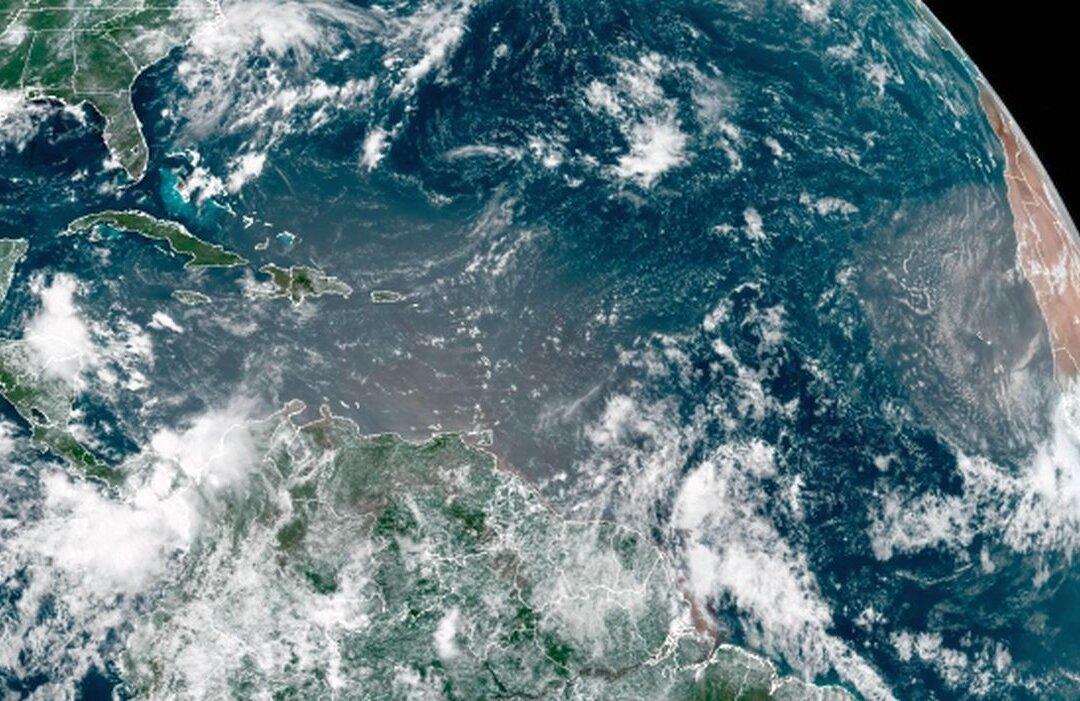A massive dust cloud from the Sahara Desert is currently drifting west over the Atlantic Ocean and is slated to impact the United States starting this weekend, forecasters say.
“The Saharan dust is so dense and widespread that it could be seen from space on Thursday. NOAA’s GOES-EAST weather satellite spotted the first cloud of dust over the eastern Caribbean Sea and the Lesser Antilles, with an even bigger plume of dust emerging off the coast of Africa,” said AccuWeather on Friday, adding that it could “impact people across the Southeast in the coming days.”





